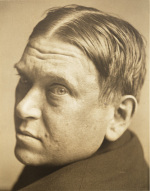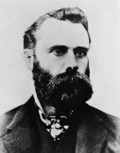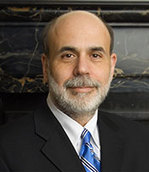Following is the essay you can designate as Volume 10, Number 32 of
This Week’s Clue, based on the e-mail newsletter I have produced since
March, 1997. It would be the issue of August 13.
Enjoy.
At no time in my living memory has fear and loathing toward the rich and famous been as palpable as it is today.
Note I say rich and famous. It’s not just the malefactors of great wealth, whether at Halliburton or the hedge funds, who are now being resented. And it’s not just the celebrities like Lindsay Lohan we dislike.
What is striking in our time is how this hatred is burning against so-called journalists, the people who bring you the news. Wolf Blitzer. Chris Matthews. Katie Couric.
In all these cases the source of resentment is the same. We feel they have gone native, that they are no longer earning their credibility, that they have become Clueless and need to get off our TVs. Yet they stay.
We rightly celebrate those who earn their way into our hearts, those who work hard, play by the rules and succeed. Find me someone who really hates J.K. Rowling, or Linus Torvalds, (left) or Anne Hathaway. They’re probably a pretty sick and twisted individual. These people got where they are in life the right way, and so far as is known lead admirable lives. They care about what they do, they do it well, then they go home and take care of those they care most about.
On the other hand there are the cheaters, those whose reputations seem unearned, whose wealth came too easy, whose fame comes from nothing more than the process of fame-making itself. Paris Hilton is the famous triple-threat here. She inherited her money, she has never done a thing worthwhile, and she’s famous for going to parties. Her downfall, albeit brief, was widely hailed.
But people like that have been with us for ages. Doris Duke was a similar character from the 1930s. What is unique in our time is that we’re no longer just angry at those who become the story.
We’re also angry at those who bring us the story.
This is a fact the elites in Washington and New York have not grasped. TV anchors, newspaper columnists, and magazine writers like Joe Klein continue to act as though they are tribunes of the people, filtering our thoughts, speaking truth to power, when the fact is we see them as part of the problem. When attacked, they tend to respond in kind, acting as though their critics are either anonymous, small-minded, or otherwise unworthy to dare dislike them and their work.
In other words, they act like Bush. The process of "going native" in Washington, or New York, or Los Angeles, is sad to see. And it’s when people do this, then remain insulated, isolated from criticism, while pretending to speak for ordinary people in Keokuk, Iowa, that the media mix changes.
Most political crises occur when the credibility of those with power
disappears. When the curtain is swung away from the Wizard, when the
Emperor is seen to have no clothes, it becomes pretty easy to point
out. But what happens when the person empowered with doing the pointing loses their
credibility?
This is when the dominant medium changes, and the process by
which this change happens is important. It’s a bottom-up process.
- In
the 1890s wise-cracking newsmen like H.L. Mencken (right) became bigger than
their employers by channeling what they were hearing around them, and
delivering it in ways readers found genuine. - In the 1930s it was radio
stars like Jack Benny and film-makers like Frank Capra who had their
finger on the pulse of the public — the newspaper columnists like
Mencken fell. - By the 1960s it was the mass market opinion-molders on TV
and radio who were replaced by niche marketers, people who tapped into portions
of the audience and gave each group what it craved.
Today this role has been taken by bloggers. The niche marketers have seen their credibility stolen by the non-marketers.
It drives famous
reporters crazy that when they blog, they don’t get the same love
people such as, say, Digby (or even Glenn Reynolds)
get from their fans. This is especially true for liberals like Digby, because
conservatives like Reynolds are echoing the messages delivered in every
other media. All the wingnut welfare
in the world won’t change the reality that the right today is speaking money to power, not truth. It’s the fact that Digby, and you, aren’t
making money that makes us honest.
The same is doubly-true in the world of money, where no one speaks
truth to power. What is the real editorial difference between, say,
CNBC and Forbes and Investor’s Business Daily and The Wall Street
Journal? They’re the same. They all suck up to the wealthy, often the
same wealthy, and they don’t distinguish between those who are mere
manipulators and those who are actually providing value. They serve their sources, not their readers.
So they’re all in the same boat. And the dangerous result is that
bearish rumor-mongers rule. When I write about troubles in the mortgage
business or in the stock market, I get a rush of traffic to the rail,
and an amen corner of bears chimes in its atta-boys. But I really know very little about the markets. I see patterns, I call those who ignore these patterns Clueless, and in the end I’m often right. A Clue is just that, a Clue. It’s no guarantee of anything.
But bearishness and cynicism are no substitute for honest analysis,
sober reflection, and hard work. This is why people love Warren
Buffett. It’s not his wealth, but his honesty, his humor, his
credibility which are the coin of the realm. No matter what happens to the market over the next several years, Buffett’s reputation will remain high.
Right now, there is an enormous opportunity out there for a
financial newsletter which aims at a large market, which analyzes what
is happening honestly, which speaks truth to power, without fear or
favor, which doesn’t care whose ox it gores. Once this was the
newsletter of Mr. Dow (left) and Mr. Jones. They stopped being that
generations ago, but their like is needed now like never before. If
were 30 years younger, if I were just starting out, that’s what I would
build, right now.
And at times like this we should all be doing this. We should be
listening to what ordinary people are saying, seeking ways to echo that
wisdom in an entertaining way, building our credibility. Today, as
never before, credibility is the coin of the realm.
TV no longer has it, not even cable. Our leaders in Washington don’t
have it. The radio hate-mongers and Hollywood party-goers don’t have
it.
Those who are working to build it, right now, are going to rule the future. No one else.















